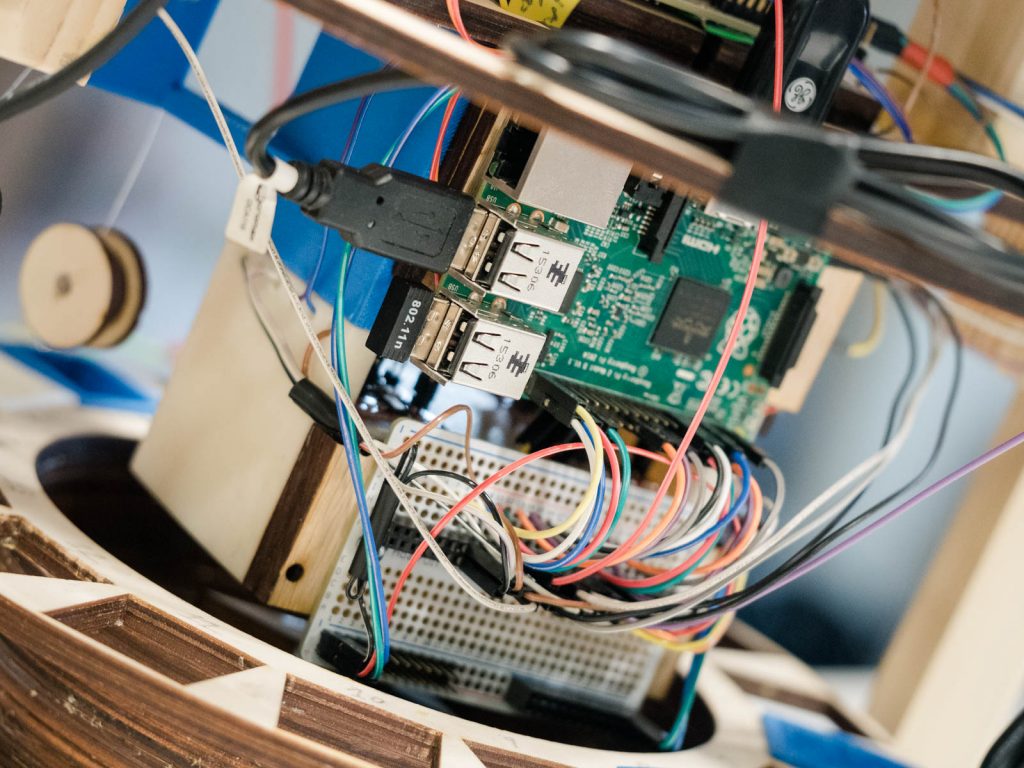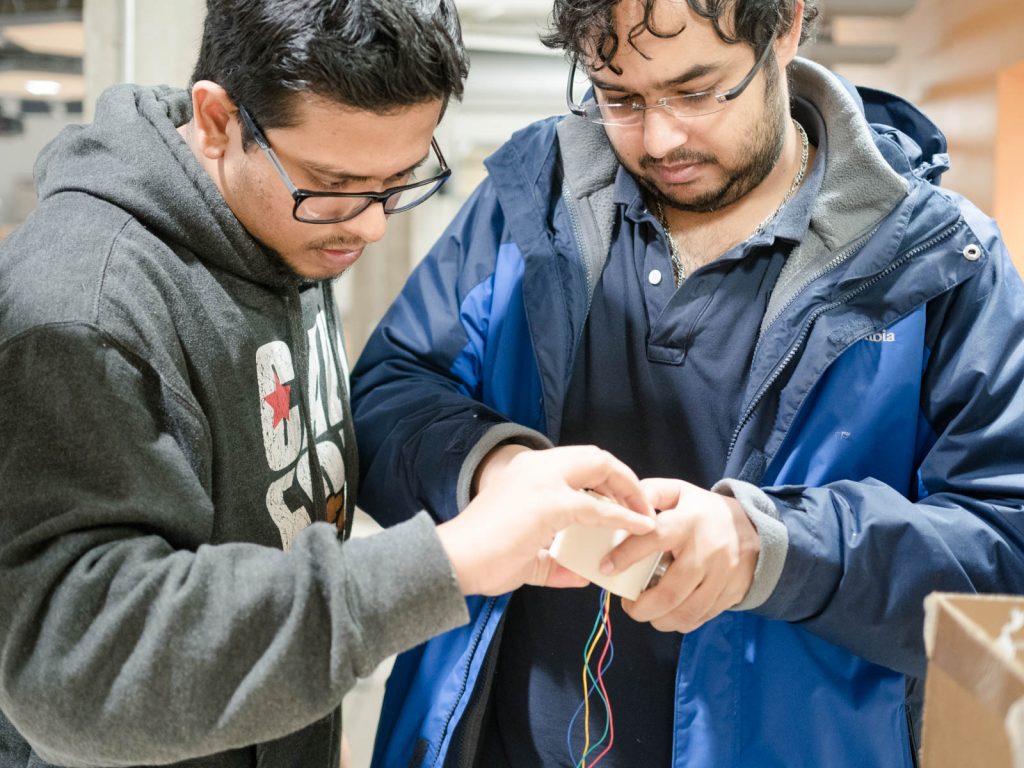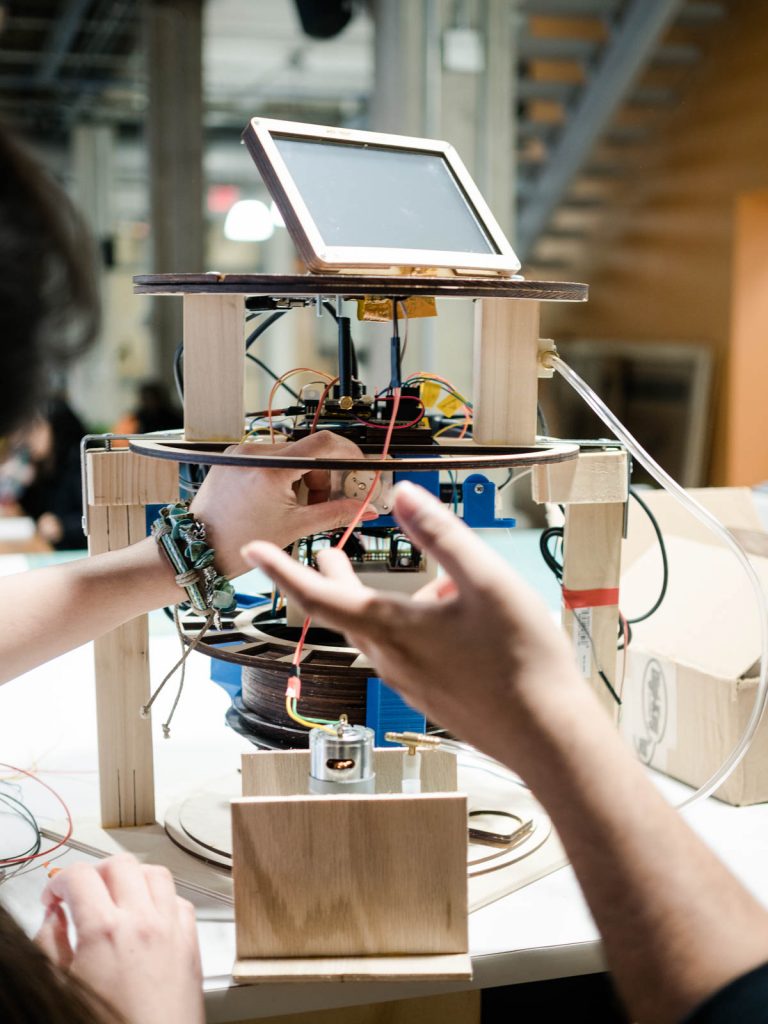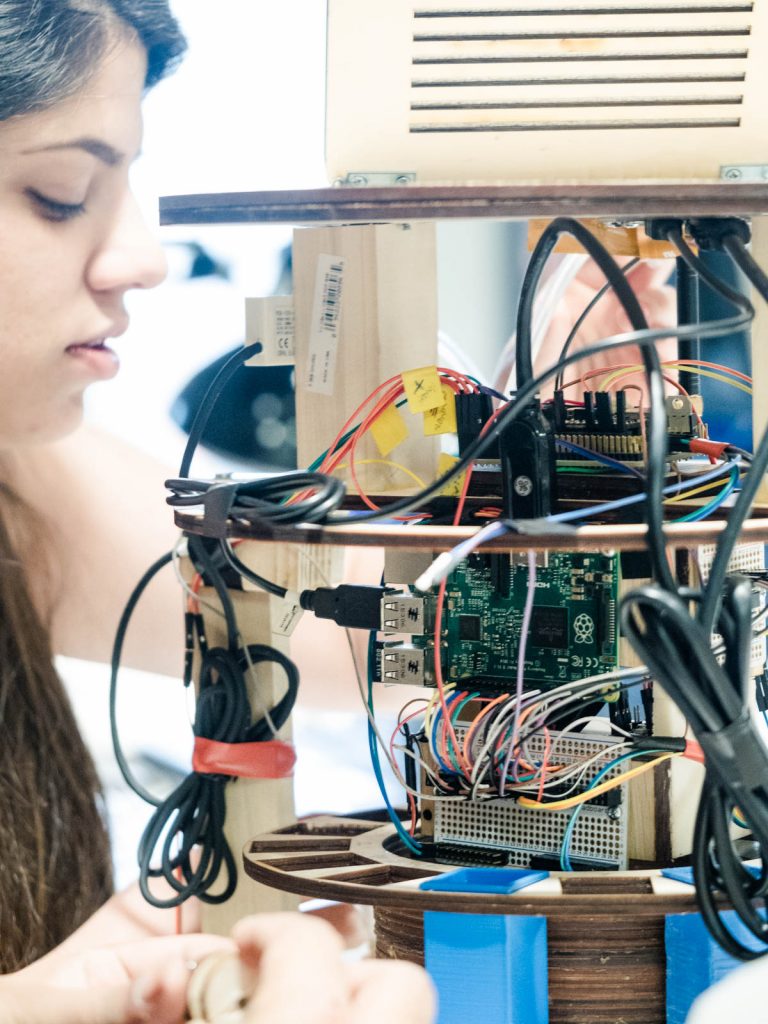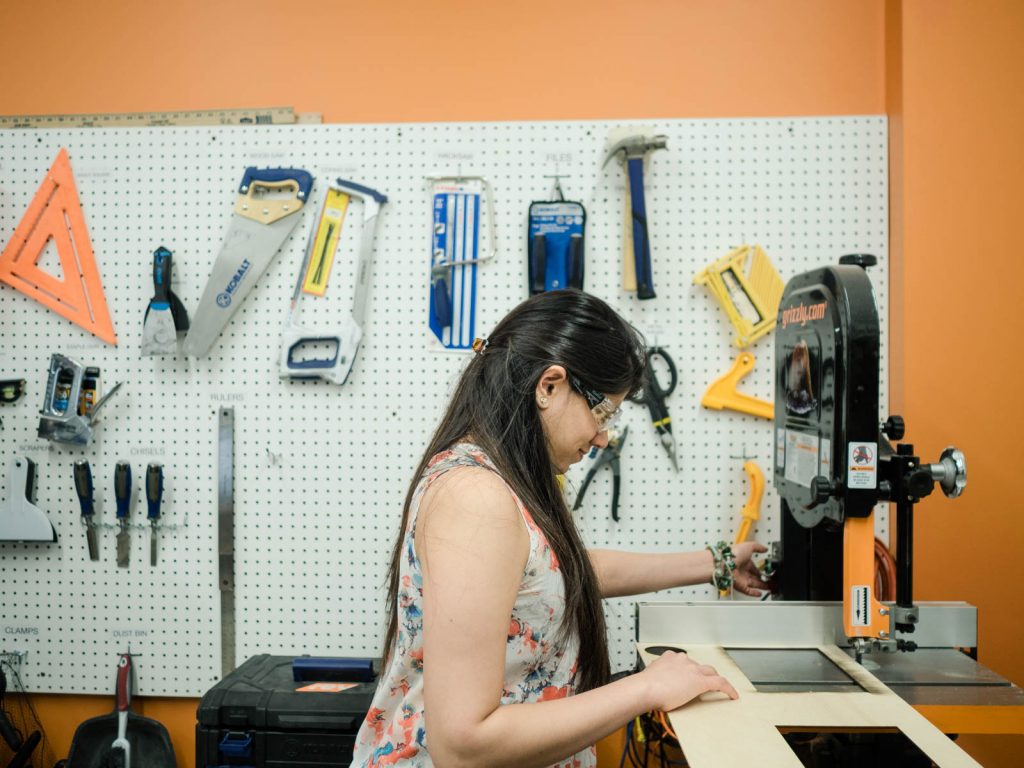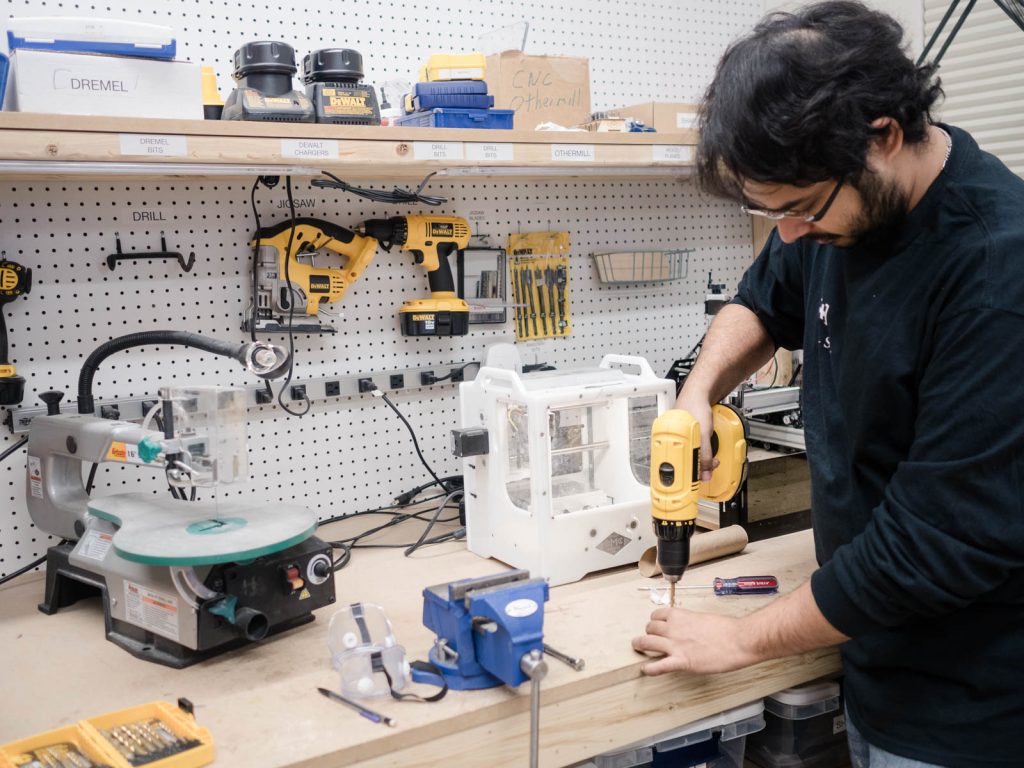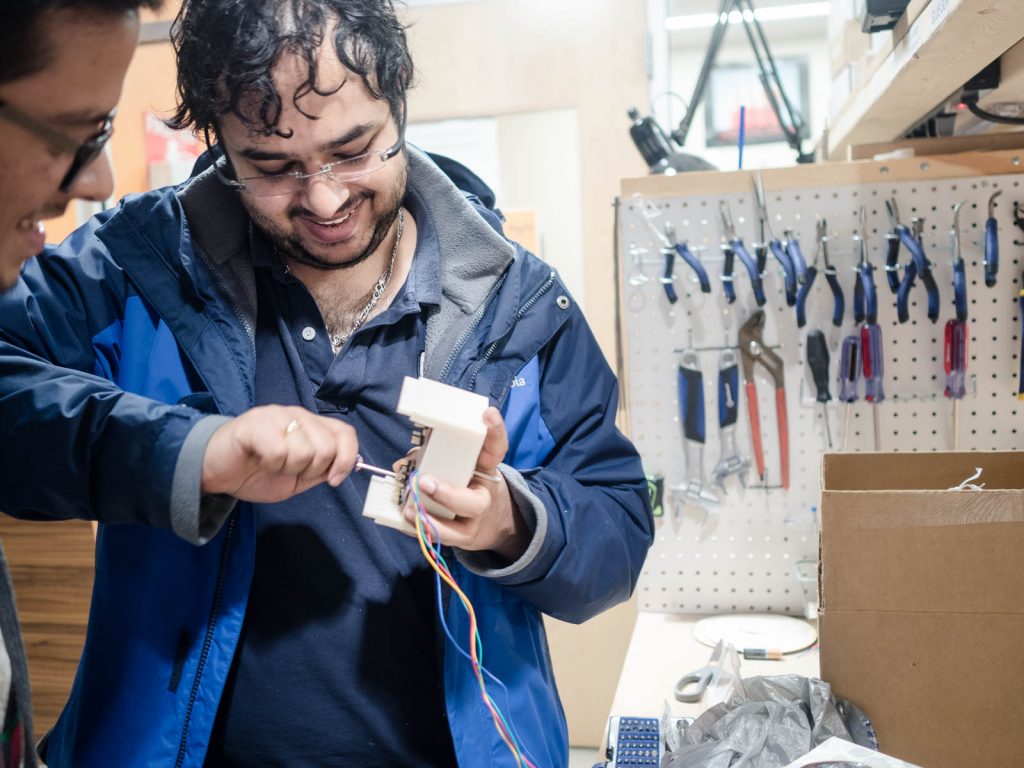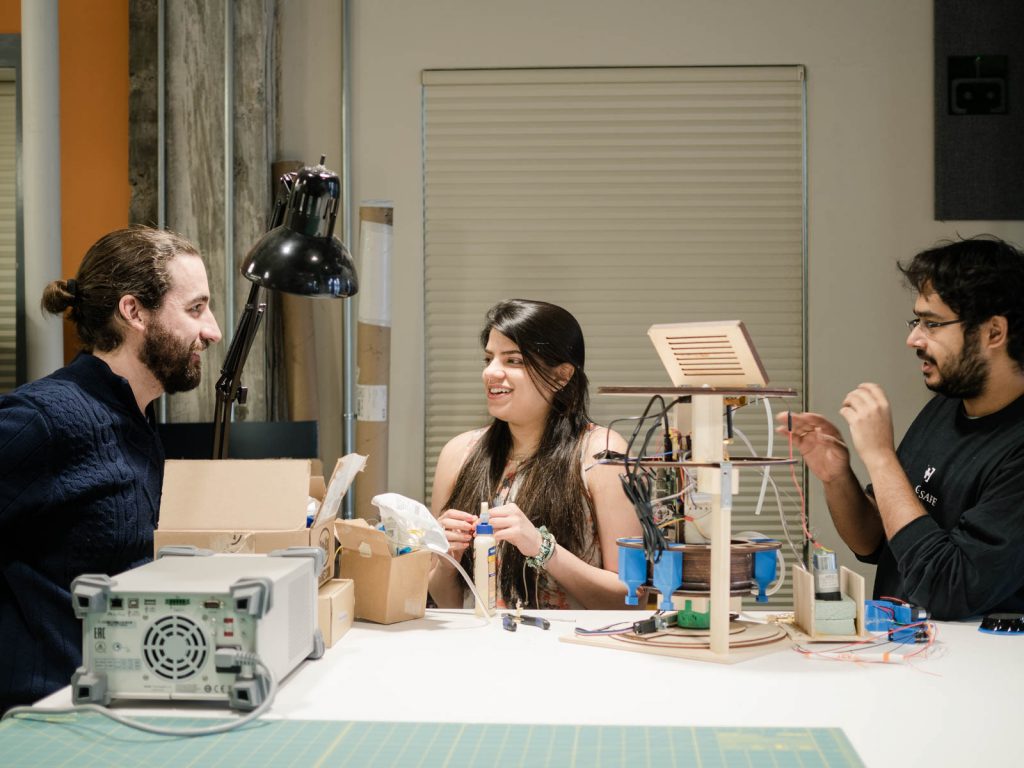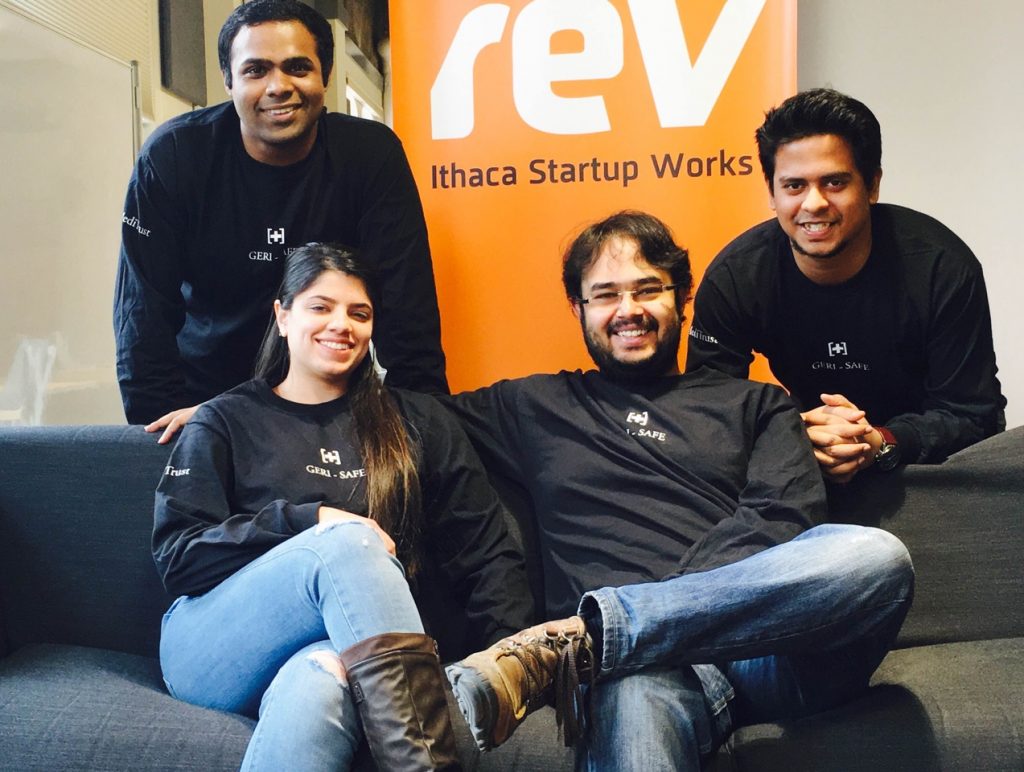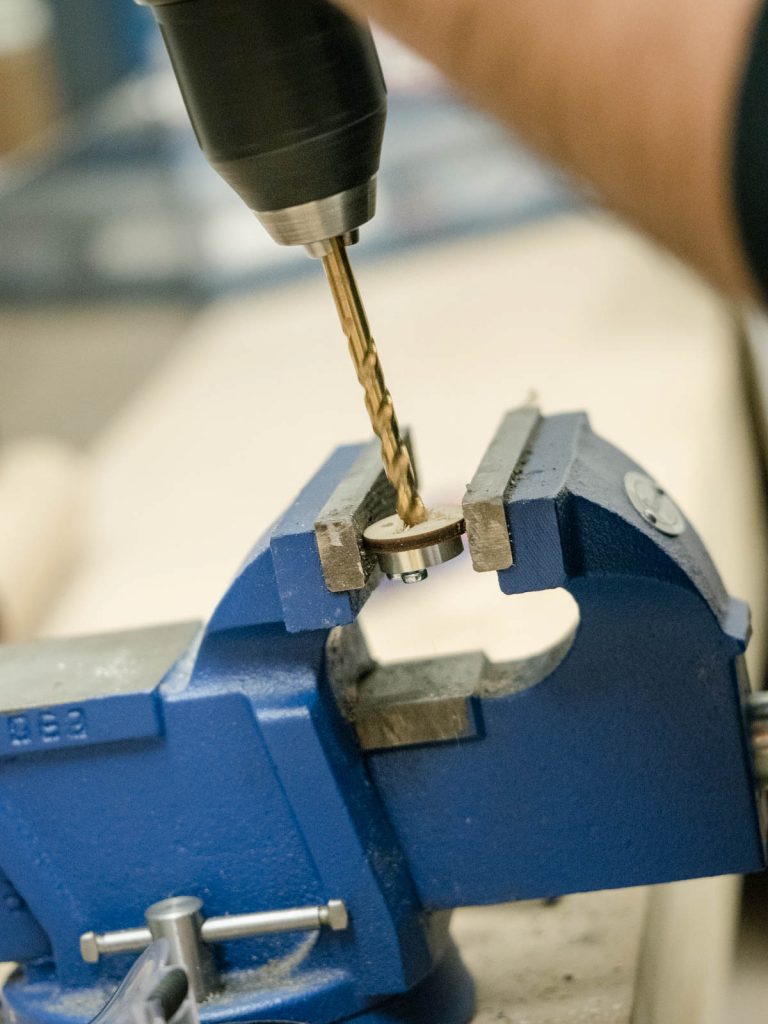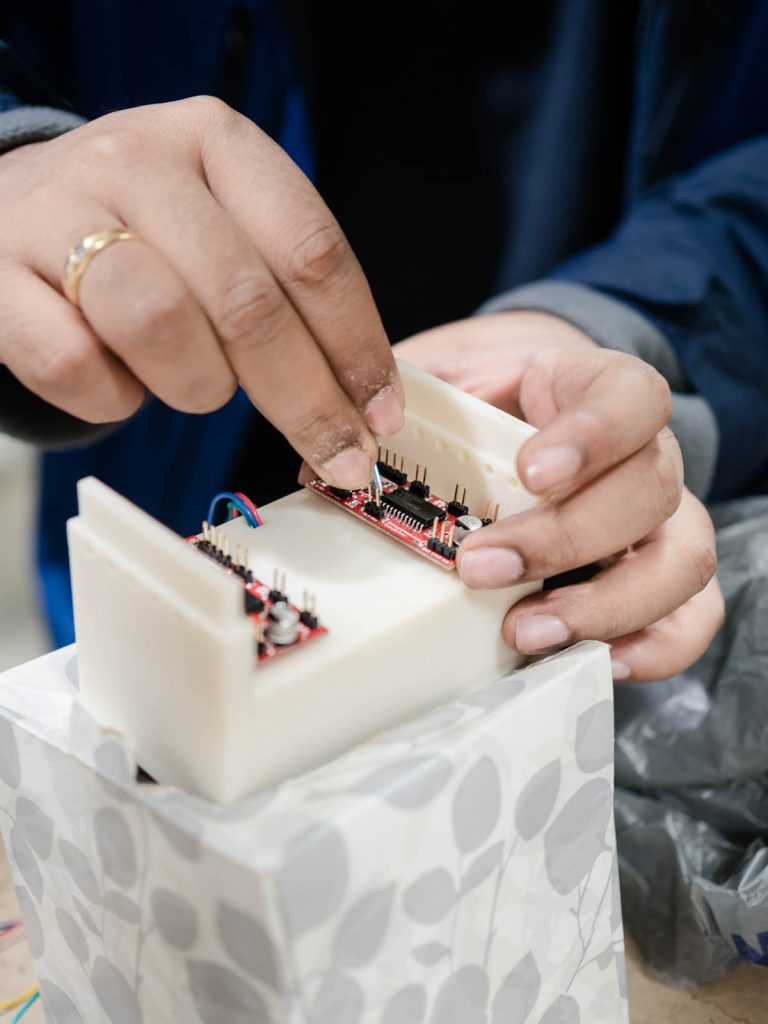Geri-Safe
An interview with Nandita Bal, Chief Product Engineer, Geri-Safe.What is Geri-Safe?
Geri-Safe develops technology to prolong the physical independence of senior adults (people over age 65). Our flagship product is Medi-Trust, which helps seniors take their medications properly.

What problem are you trying to solve?
Currently we’re trying to solve the problem of medication management: taking pills on time, and taking the correct pills. Medication noncompliance in senior adults is costing insurance companies about $200 billion every year in reimbursement, and human error when sorting medication leads to 125,000 deaths annually. We’re trying to address the human error associated with the sorting of pills.
How are you impacting the healthcare industry?
There isn’t anything on the market right now like our product. There are pill dispensers, but the sorting is still done by the user. If you have a user above age 65, that could be problematic.
The university, the location, the mentorship, the space, the Hardware Accelerator workshop, the network–those are what made me stay in the Southern Tier.
There are about 55 million people above the age of 65, and 20% of them–so 11 million people–have some sort of physical or cognitive impairment. If you have Alzheimer’s, or a vision problem, or arthritis, and you’re trying to load those boxes, you are going to make a mistake. At that age, the medicine you take is not a daily vitamin–it’s much more critical. A missed medication or an overdose can have some serious results.
Who is your primary target audience?
I would divide our audience in two: one target audience is the user, and the other is the buyer. The user is an elderly person or a caregiver who can program the device; the buyer is someone like me, or my mother, who would buy this product for my grandmother.
What is the most surprising thing that you learned in your customer research?
I didn’t realize how important customer research was until I came to the Hardware Accelerator! As an engineer, I was so focused on solving the technical problem, that I didn’t realize the customer is everything!
There were a lot of things we learned. We wanted a fancy design, but when you actually go to an old person’s home, you’ll see that there are space restraints, so you want something that fits in the environment and that seniors can keep something on top of. We thought that the more automated our product is, then the easier it would be for seniors. But old people don’t want technology; they want it to be simple.
What brought your company to the Southern Tier?
It was the location and the fact that we had a resource like Rev, the workshop, and mentors who can guide you. I was doing my Master’s degree project at Cornell University and when I graduated, my professor wanted me to develop my idea further. Rev was based in Ithaca, so I joined the summer Hardware Accelerator program. There are so many events that keep happening at Rev, so the whole community thinks of Rev as the place to come talk about startups. For networking, that was great.

Why did you choose to stay in the Southern Tier and join Rev full-time?
It was perfect for me. I had rapport with Ken Rother (Rev Hardware Accelerator Program Director and Southern Tier Startup Alliance Entrepreneur-In-Residence) and there was a network built around Ithaca. I think Ithaca is a nice place to be because there are enough universities you can draw from, there are some really smart people, and everyone is excited about entrepreneurship. The $2,000 in development funds that I received as part of the Hardware Accelerator program was enough to get a functioning prototype– the 3D printer in the Rev prototyping lab helped us test a lot of the small details of our specific designs before considering manufacturing. And the mentors were always there to guide me, so my work never stopped.
The university, the location, the mentorship, the space, the Hardware Accelerator workshop, the network–those are what made me stay in the Southern Tier.
The Hardware Accelerator provided the money we needed to build the first prototype, then mentorship in terms of management, how to get funds, how to talk to people, and how to pitch. It makes me more confident about my project.
How did the Rev Hardware Accelerator impact your company and product?
The Rev Hardware Accelerator gave me the tools to build a prototype that gave me confidence to work in the market. It taught me how to understand my customer segments, and how to develop for them. It gave me confidence that I am building something the community will want. My company’s not based on what I think now; the focus has shifted to what the customers want. The Hardware Accelerator provided the money we needed to build the first prototype, then mentorship in terms of management, how to get funds, how to talk to people, and how to pitch. It makes me more confident about my project.
How does your business impact the region?
We decided to go into manufacturing once we are done with the prototyping stage. When that happens it is going to create a lot of jobs. It’s not just engineers; it’s all the people who work on the assembly line, manufacturing engineers, operations research engineers– all kinds of work.
What is your biggest area of weakness?
This industry is very unexplored. When we started about one and a half years ago, there was absolutely nothing on the market that automates pill sorting, so we didn’t have statistics or market search.
How do you know that you are on the path to success?
Because we definitely know that there’s a market, that there is a need for this product. When I was building this, I built it with my Grandmom in mind. Every person I’ve spoken with has said it’s a cool idea, and people in very high positions hear my pitch, then give me advice on how to develop it further. That’s very encouraging.
What is the best advice you’ve ever received as an entrepreneur?
I have two: If you 100% love what you’re doing, if you can do it even when you’re not getting paid, and if you get nothing out of it but still want to do it, then that’s the only reason why you should do it–because you love it.
The second piece of advice was from my CEO, who was my professor during grad school. You can’t delegate talking to your team. If you need a problem solved, you need to be there. If you need to understand someone, you can’t have somebody else talk to that person. You have to be there.
What advice would you give to budding entrepreneurs?
Do it only if you love it. But if you love it, don’t think twice.

